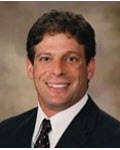Call (803) 781-7901
A Root Canal Abscess
What Causes an Endodontic Abscess?
An endodontic abscess is caused by infected pulpal tissue. This acute disease process then spreads to the outside of the root and enters the bone and soft tissues around the tooth. An endodontic abscess is oftentimes accompanied by a cascade of symptoms. These symptoms may include:
- Pain to hot liquids, touch, or biting pressure.
- Pressure that partially pushes the tooth out of the socket, causing it to contact the opposing tooth first upon biting.
- A loose tooth resulting from infection and subsequent pressure that builds around the outside of the tooth.
- Swelling localized to the tissue around the tooth.
- Swelling that spreads from the gums around the tooth into the cheek, lips, or neck areas. These tissues can become swollen resulting in an exaggerated asymmetry of the face.
In cases of extreme dental infection, the eye can become swollen shut or breathing can become difficult as pressure builds against vital structures. In these instances of severe infection, hospitalization may become necessary.
What Is Involved in the Emergency Management of an Abscessed Tooth?
An endodontic abscess can be extremely painful and emergency treatment is directed towards promptly relieving the patient's pain and, if present, reducing the swelling as quickly as possible. Emergency management would usually include getting the area profoundly numb and then creating a small window through the biting surface of the tooth and into the pulpal space. By opening the tooth in this manner, the dentist can relieve the pressure that has built up inside the tooth and allow the infected area to drain. Usually, the only procedures that are performed at the emergency visit are the ones that are necessary to eliminate acute pain and control the infection. Subsequent care an endodontic abscess will be necessary when the patient is more comfortable and relaxed in order to properly complete root canal treatment. At the conclusion of the emergency visit, the patient may require medications for pain and/or infection control and these will be prescribed by the doctor if they are necessary.
By Clifford J. Ruddle, DDS, in collaboration with Philip M. Smith, DDS
Call for an appointment:
(803) 781-7901
Make an Appointment
Get the SMILE of your DREAMS!!
HOW LONG HAS IT BEEN SINCE YOU HAD YOUR LAST CHECK-UP?
IF IT HAS BEEN MORE THAN 6 MONTHS CALL US TODAY






